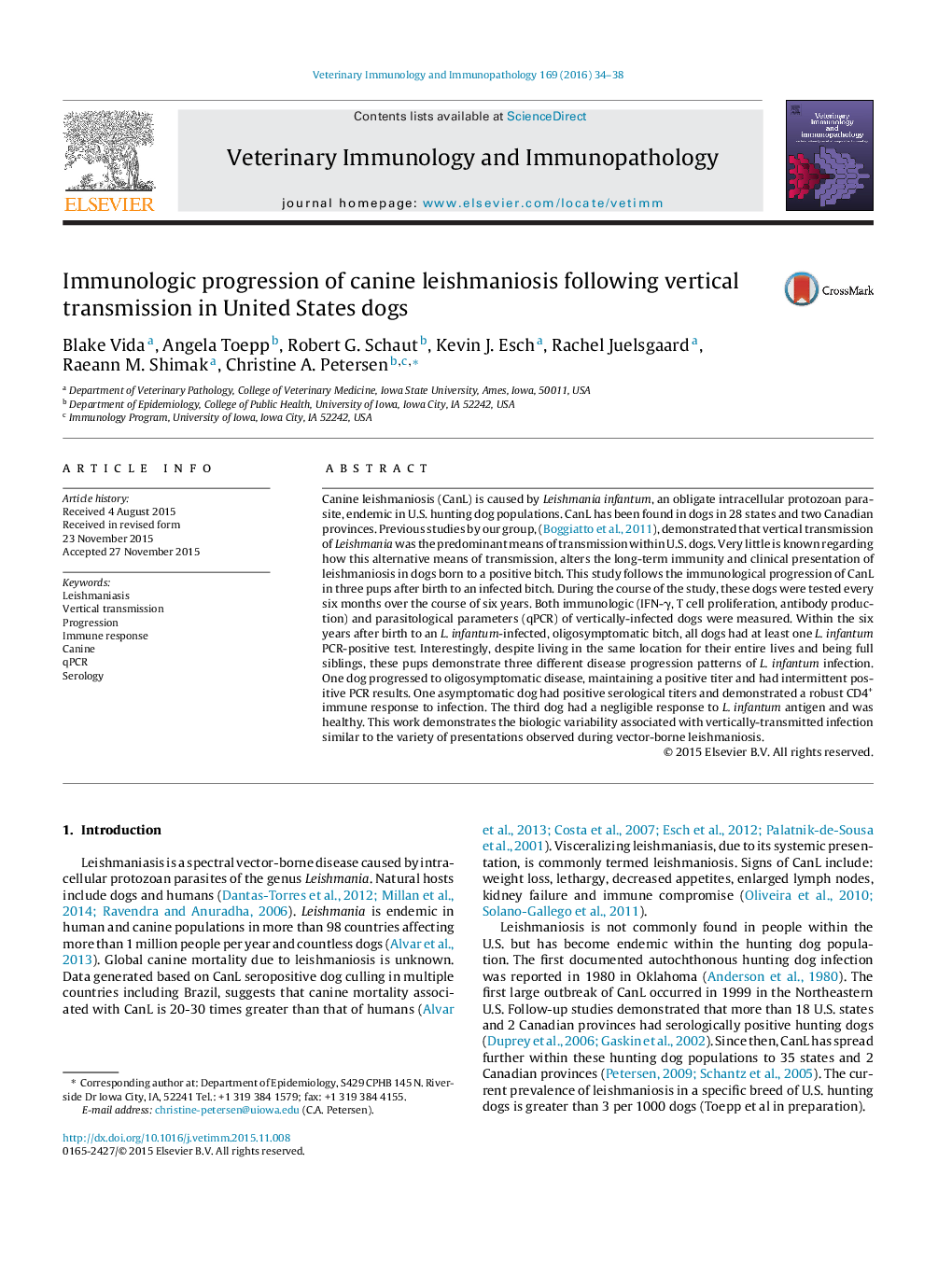| کد مقاله | کد نشریه | سال انتشار | مقاله انگلیسی | نسخه تمام متن |
|---|---|---|---|---|
| 5796621 | 1555015 | 2016 | 5 صفحه PDF | دانلود رایگان |
- Immunological and parasitological characteristics were examined in in utero-exposed dogs until clinical leishmaniosis appeared.
- Immunologic progression after vertical transmission varied for each dog in the study.
- Disease progression over multiple years suggested that all pups born to a bitch with leishmaniosis were infected.
- Vertical transmission had a high penetrance in exposed animals and therefore requires breeding precautions in infected dogs.
Canine leishmaniosis (CanL) is caused by Leishmania infantum, an obligate intracellular protozoan parasite, endemic in U.S. hunting dog populations. CanL has been found in dogs in 28 states and two Canadian provinces. Previous studies by our group, (Boggiatto et al., 2011), demonstrated that vertical transmission of Leishmania was the predominant means of transmission within U.S. dogs. Very little is known regarding how this alternative means of transmission, alters the long-term immunity and clinical presentation of leishmaniosis in dogs born to a positive bitch. This study follows the immunological progression of CanL in three pups after birth to an infected bitch. During the course of the study, these dogs were tested every six months over the course of six years. Both immunologic (IFN-γ, T cell proliferation, antibody production) and parasitological parameters (qPCR) of vertically-infected dogs were measured. Within the six years after birth to an L. infantum-infected, oligosymptomatic bitch, all dogs had at least one L. infantum PCR-positive test. Interestingly, despite living in the same location for their entire lives and being full siblings, these pups demonstrate three different disease progression patterns of L. infantum infection. One dog progressed to oligosymptomatic disease, maintaining a positive titer and had intermittent positive PCR results. One asymptomatic dog had positive serological titers and demonstrated a robust CD4+ immune response to infection. The third dog had a negligible response to L. infantum antigen and was healthy. This work demonstrates the biologic variability associated with vertically-transmitted infection similar to the variety of presentations observed during vector-borne leishmaniosis.
Journal: Veterinary Immunology and Immunopathology - Volume 169, January 2016, Pages 34-38
